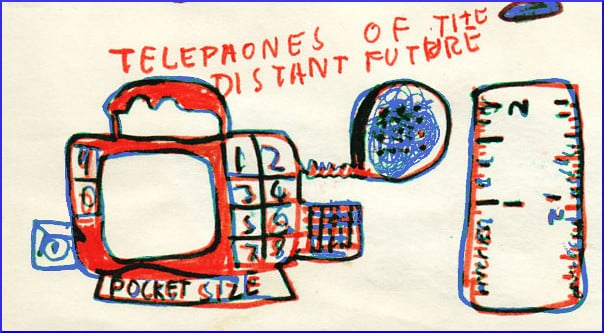
As we have seen, academicians from the United States, the United Kingdom, and Australia worked together on a meta analysis of 22 mental health interventions administered by smartphone. They learned that many patients get along just fine with guidance from a computer program.
People with severe depression can benefit from a behavioral activation application, and those with milder depression derive more help from a mindfulness app. Phone therapy, or mobile health, may still need to be accompanied by the occasional human contact, and probably will not remove the need for anti-depressant medication, but these are not considered drawbacks.
Of course, it takes the intelligence of people to set up the system in the first place, but after that, no human interaction is necessary. This has been a long time coming. One of the first things computer tinkerers did was to invent programs they could converse with. Initially, the programs and the humans could not even talk, only write text messages back and forth.
People also like such features as summary statistics and progress scores. The study authors wrote:
It seems counterintuitive that additional features/human feedback would decrease smartphone effectiveness. However, this relationship is likely due to the fact that apps not relying on external components have been designed as more comprehensive and self‐contained tools. Indeed, we found some indication that studies which provided in‐app feedback were more effective than those without.
A typical mHealth product, called Learn2Act, not only deals directly with patients, but provides Acceptance and Commitment Therapy training to the providers of health care. Also:
Clients can enter to what extent they live towards their values on a weekly base… Through the online platform, this data will also be accessible to the health care provider. This way you can follow up on your client’s condition from a distance and intervene when necessary.
Overall, the conclusion was that smartphone therapy can reduce depressive symptoms, and patients can manage their own care much like a diabetes sufferer who consults a monitoring device and injects the appropriate dose of insulin. The technology is universally heralded as promising, while additional research and revisions are always urged.
The news, while good, is not definitive across the board. Dr. Pretlow notes that all studies of this type appear to have obtained information from adults, while teenagers and children may react differently. In developing W8Loss2Go, he has found that “many adolescents in our studies have required prodding to get them to use the app and intervention.”
An uncredited writer at Healio.com quoted lead author Joseph Firth, who is a postdoctoral research fellow at the National Institute of Complementary Medicine in Australia:
Mobile phones are among the most rapidly adopted innovations in recent history… Through providing ubiquitous Internet connectivity, along with the capacity to download and run externally created applications (“apps”), smartphone technology presents an opportunity to transform mobile phones into devices which could provide global, cost-effective and evidence-based mental health services on demand and in real time.
Psycom.net has reviewed what they deem the 25 best mental health apps, broken down into distinct areas such as: General Mental Health, Addiction, Anxiety, Bipolar Disorder, Depression, Eating Disorders, Obsessive-Compulsive Disorder, Post-Traumatic Stress Disorder, Schizophrenia, Stress, and Suicide Prevention.
Your responses and feedback are welcome!
Source: “Evidence-based blended acceptance and commitment therapy,” Learn2Act.net
Source: “Smartphone apps effective for depression,” Healio.com, 10/02/17
Source: “Top 25 Best Mental Health Apps: An Effective Alternative for When You Can’t Afford Therapy?,” Psycom.net, 2018
Photo credit: Chris Limb (catmachine) on Visualhunt/CC BY

 FAQs and Media Requests:
FAQs and Media Requests: 











